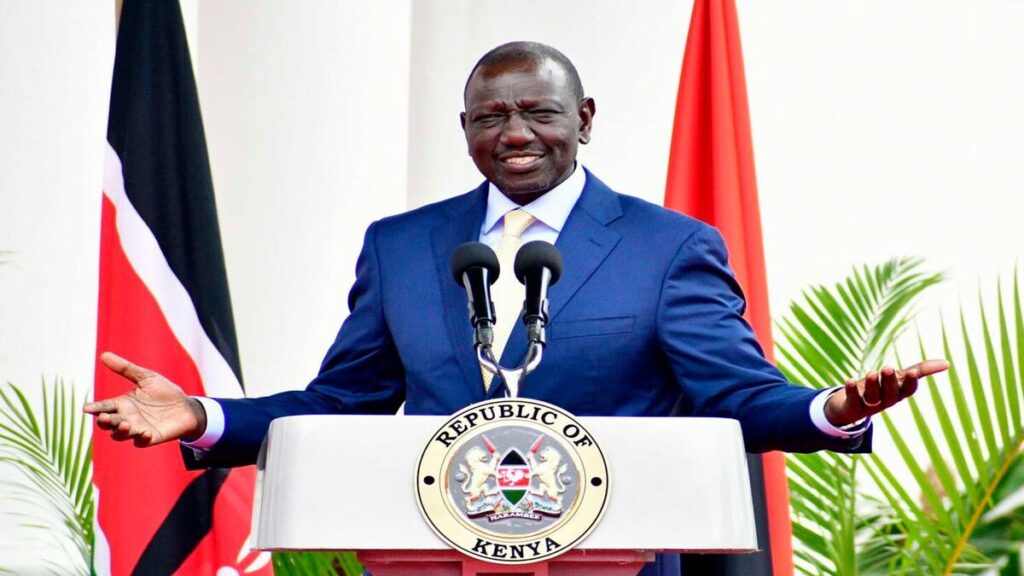President William Ruto has strongly defended his Bottom-up Economic Transformation Agenda (BETA). The comprehensive economic plan focuses on five essential pillars to transform Kenya’s economy.
During his recent address, Ruto outlined the significant progress in implementing the BETA agenda. The plan centres on agriculture, micro-enterprises, housing, healthcare, and digital innovation.

President William Ruto. Courtesy photo
Agricultural production has shown remarkable improvement under the initiative. Notably, maize production increased by 38.9% since the program’s implementation. This growth demonstrates the effectiveness of agricultural reforms.
The government’s focus on digital infrastructure has yielded positive results. The country has witnessed a substantial 111% increase in fibre optic cable installation. This expansion aims to boost digital connectivity across Kenya.
Small businesses form a crucial part of the BETA agenda. The administration has prioritized support for micro, small, and medium enterprises. These businesses create employment opportunities for many Kenyans.
Affordable housing remains a key priority under the BETA framework. The government continues to implement housing projects nationwide. These initiatives aim to provide decent housing for all Kenyans.
Universal health coverage forms another essential pillar of the agenda. The administration works to ensure all Kenyans access quality healthcare services. This goal aligns with the broader vision of improved living standards.
However, the implementation journey faces various challenges. Funding constraints have affected some projects under the BETA agenda. Legal hurdles have also slowed down certain initiatives.
Despite these obstacles, Ruto maintains an optimistic outlook. He believes the administration will fulfill its promises to Kenyans. The government continues to work on overcoming implementation challenges.
The BETA agenda represents a significant shift in economic policy. It prioritizes bottom-up economic growth over traditional top-down approaches. This strategy aims to benefit all sectors of society.
Digital transformation plays a vital role in the agenda’s success. The expanded fiber optic network supports various economic activities. It enables businesses to operate more efficiently and reach wider markets.
The agricultural sector shows promising results under BETA. Increased maize production demonstrates the effectiveness of agricultural policies. This success contributes to food security goals.
Economic experts continue to monitor the agenda’s implementation. They acknowledge progress in certain areas while noting existing challenges. Their analysis helps inform future policy adjustments.
The administration emphasizes long-term economic transformation. Through BETA, they aim to create sustainable economic growth. This approach focuses on inclusive development for all Kenyans.
Regular updates on BETA implementation keep citizens informed. The government maintains transparency about achievements and challenges. This openness helps build public trust in the initiative.
Looking ahead, the administration remains committed to BETA’s success. They continue working to overcome implementation hurdles. The focus remains on delivering tangible benefits to Kenyans.



















